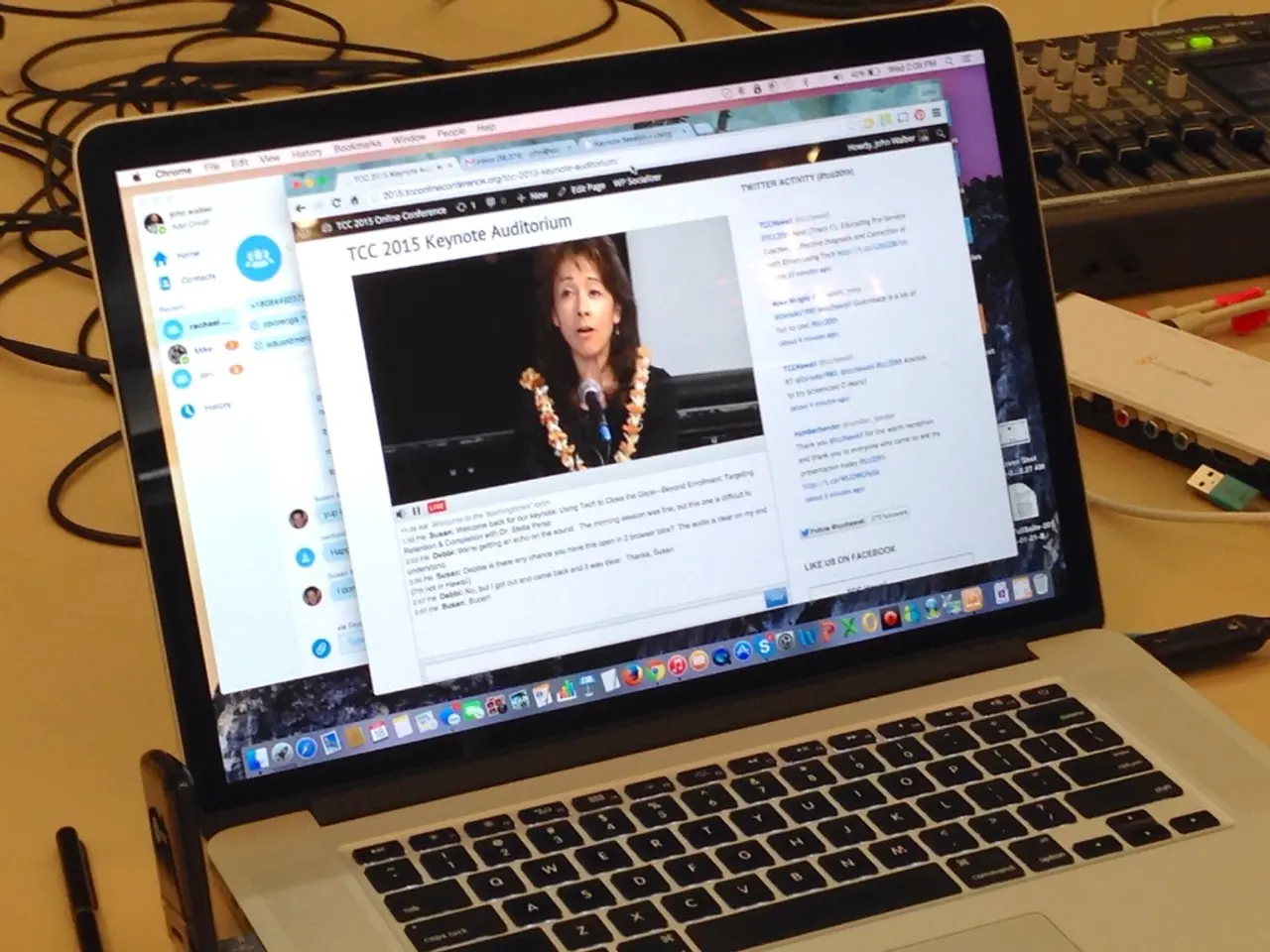Role of Working Memory in Efficient Task Organization Methods
Working memory, a crucial cognitive function, acts as a mental workspace for processing information related to tasks and decisions. It temporarily stores and manipulates data necessary for cognitive tasks, playing a vital role in task management and productivity [1][3][5].
When working memory is overloaded, it can lead to cognitive overload, causing difficulty in managing multiple tasks, forgetting details, making errors, and overall decreased productivity [1][3][5]. Multitasking, in particular, taxes working memory, often reducing effectiveness and increasing stress [1][5].
To boost working memory for better task management, several strategies are effective:
- Task repetition and gradual difficulty adjustment: Repeating tasks and slowly increasing their complexity helps improve working memory capacity [2].
- Rehearsal and chunking: Actively rehearsing information and organizing it into meaningful chunks enhances retention and processing [2].
- Mnemonics and mental imagery: Using memory aids like mnemonics or pairing concepts with visual images improves recall and management of tasks [2].
- Coordinative exercise: Physical activity, particularly that which involves complex motor learning, supports working memory improvements [2].
- Limiting multitasking: Focusing on one task at a time reduces working memory overload, improves attention, and prevents productivity loss [1][5].
- Positive feedback and reinforcement: Receiving constructive feedback and rewards can motivate sustained use of working memory strategies [2].
In today's digital age, utilising tools and technologies can significantly enhance working memory. Calendar apps like Google Calendar allow setting reminders for tasks and deadlines, reducing cognitive load [4]. Task management tools like Trello and Asana allow visual tracking of progress and breaking large projects into smaller, manageable tasks [6].
Note-taking apps such as Evernote and Microsoft OneNote help in capturing and organizing information efficiently [7]. Mobile notifications from task apps prompt about due dates, ensuring nothing slips through the cracks. Alerts can be customized based on urgency or importance to meet individual needs [4].
Digital assistants like Siri or Google Assistant can help schedule tasks and set voice-activated reminders, improving time management [8]. Mind mapping software like MindMeister assists in visually arranging ideas for efficient thought organization [9].
Recognizing the limitations of working memory and applying targeted training or lifestyle interventions is key to effective task management. Improving working memory impacts other skills like time management, task management, and productivity. Understanding how working memory influences task management processes can improve productivity [10].
- Prioritization of tasks becomes more manageable when information is organized and captured efficiently using note-taking apps like Evernote and Microsoft OneNote.
- The utilization of digital assistants like Siri or Google Assistant can aid in scheduling tasks and setting voice-activated reminders, helping in time management.
- To support women's personal growth, education, and self-development in sustainable productivity, incorporating strategies such as limiting multitasking, focusing on one task at a time, can be beneficial.
- Mnemonics and mental imagery can play a crucial role in boosting working memory, which substantially improves cognition, planning, and organization, and ultimately leads to increased productivity.
- Task repetition and gradual difficulty adjustment, along with rehearsal and chunking, can improve working memory capacity, thereby enhancing executive function and productivity.
- Incorporating coordinative exercise into daily routines can support working memory improvements, leading to better mental workspace utilization, better performance in task management, and personal growth.




